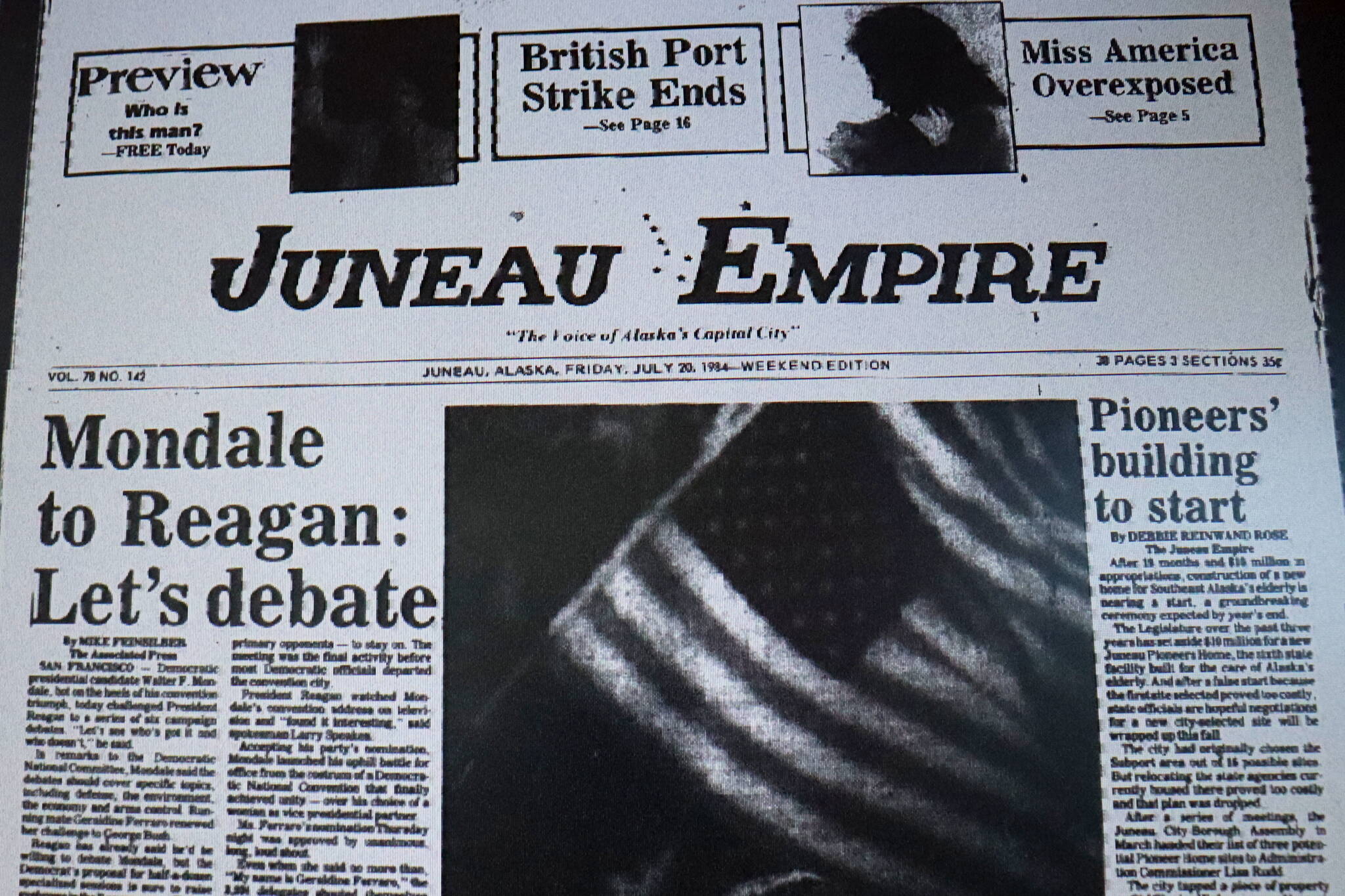Empire Archives is a series printed every Saturday featuring a short compilation of headline stories in the Juneau Empire from archived editions in 1984, 1994 and 2004.
This week in 1984, after 19 months and $10 million in appropriations, construction of a new home for Southeast Alaska elderly is nearing a start, with a groundbreaking ceremony expected by year’s end. The Legislature over the past three years has set aside $10 million for a new Juneau Pioneer Home, the sixth state facility built for the care of Alaska’s elderly. After a false start because the first site selected proved too costly, state officials are hopeful negotiations for a new city-selected site will be wrapped up this fall. The city has originally chosen the Subport area out of 16 possible sites. But relocating the state agencies currently housed there proved too costly and that plan was dropped. After a series of meetings, the Juneau City-Borough Assembly in March handed their list of three potential Pioneer Home sites to Administration Commissioner Lisa Rudd. The city tapped a piece of property on Old Glacier Highway as its top choice, followed by a parcel near the Bethel Christian Center in the Mendenhall Valley. The city’s third choice was a tideland plot along Front Street in Douglas.
Today the Pioneer Home is located at the Glacier Highway site, but a shortage of available senior housing — part of a more widespread community shortage — is a lingering concern.
Original Story: “Pioneers’ building to start,” by Debbie Reinwand Rose. 7/20/1984.
This week in 1994, Fredrick and Terry Hoskinson, along with a team of volunteers, have started a small television station in Juneau, dependent on residents for its programming. Earlier this year the couple received permission from the Federal Communications Commission to start a low-powered television station on Channel 5. The station began airing this spring, with about eight hours of programming per week. So far, the small station’s signal reaches just downtown, Douglas, North Douglas and West Juneau, but the Hoskinsons said their tentative plans call for possible expansion to cable by Labor Day. The Hoskinsons are quick to point out that almost nothing about the station is definite. The idea is to start out slowly and see how it develops. He is critical of existing television, saying most of it is nothing more than “media hype and ‘Leave It To Beaver’ reruns.” “Frankly, ‘sense of community’ was a lot stronger before electronic media,” he said. “Television has helped destroy communities by taking us away from our communities and spending less time with one another.”
Today, of course, electronic media is the primary way many community members interact through online groups and channels focusing on Juneau — and very specific subsets of the town — with videos and other content shot with phones rather than television cameras.
Original Story: “Small signal, big plans,” by James MacPherson. 7/18/1994.
This week in 2004, starting next year, the Juneau Fourth of July Committee will bar entries it thinks inappropriate. The committee made the decision after receiving complaints from spectators angry with a man wearing a President George W. Bush mask and holding a sign that read, “I think I served. Commit troops. Cut benefits.” “This single individual chose to express his own opinion without prior approval from our committee,” said committee director Gerald Dorsher. “If the committee had been given an opportunity, we would have not allowed such a volatile political entry into our parade.” “Although we firmly support the First Amendment, we feel strongly that there is a time and a place for personal or political opinions,” said Dorsher, who called the man “distasteful.” In the past, although groups or individuals needed to file an entry form to join the annual Fourth of July parade downtown, there were no regulations on the content of the entries. This will be the first time the committee incorporates such rules in its entry form to prevent any “obscene, vulgar or inappropriate behaviors.” Just as residents are divided over whether the man in the mask was appropriate, the public seems to be equally divided whether the committee should regulate contents of parade entries. “Fourth of July is a celebration of independence, not a celebration of restrictions,” said Erik Lie-Nielsen, a Vietnam War veteran. “They are trying to stifle freedom of expression, which the country is all about.”
Original Story: “Group to bar ‘inappropriate’ parade entries,” by I-Chun Che. 7/14/2004.
• Contact Mark Sabbatini at mark.sabbatini@juneauempire.com or (907) 957-2306.

